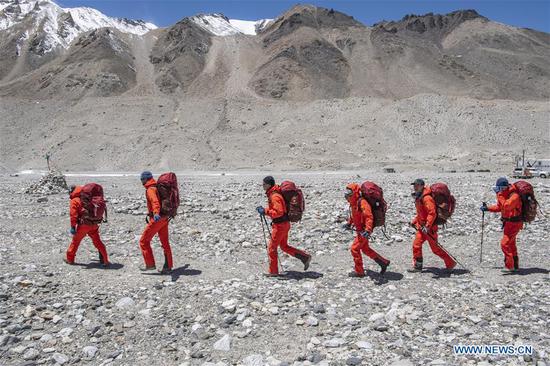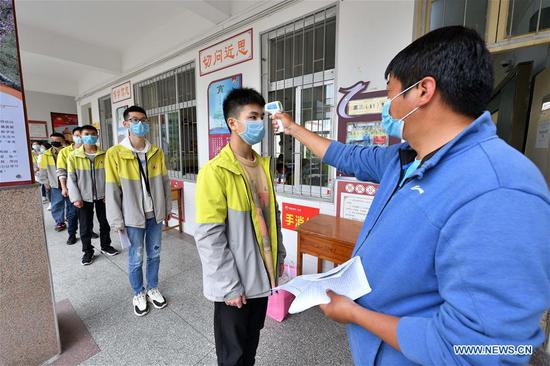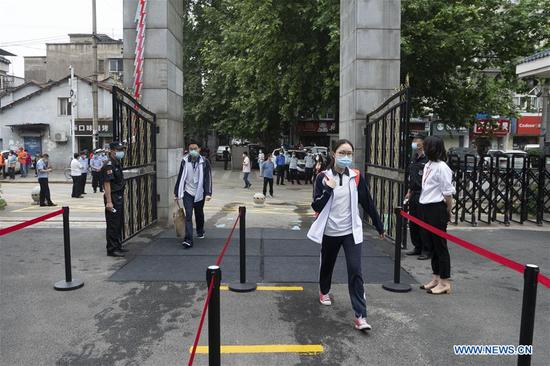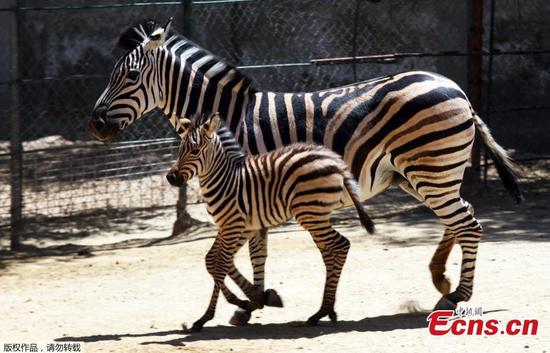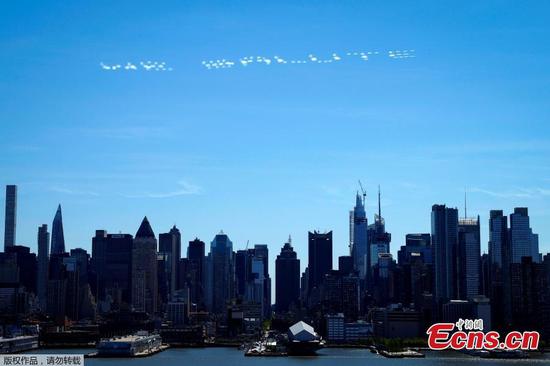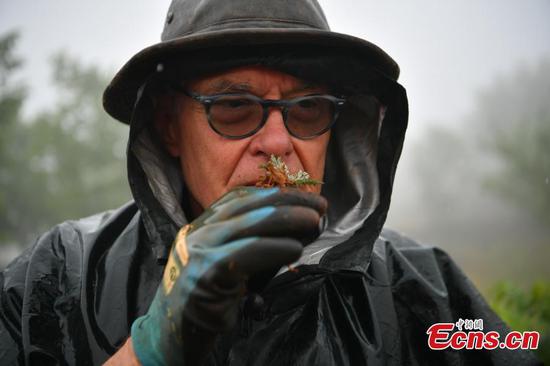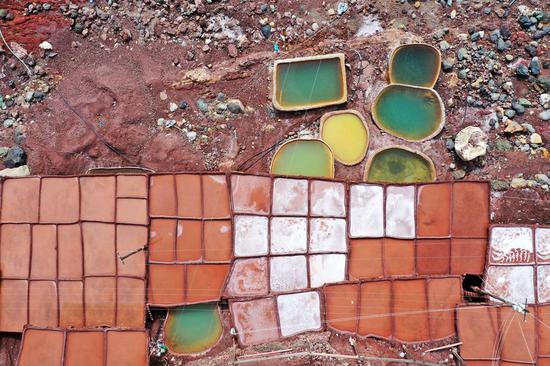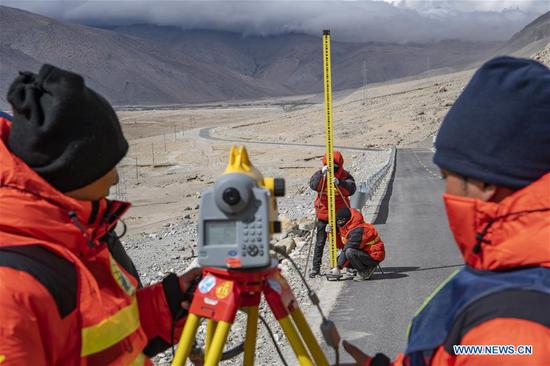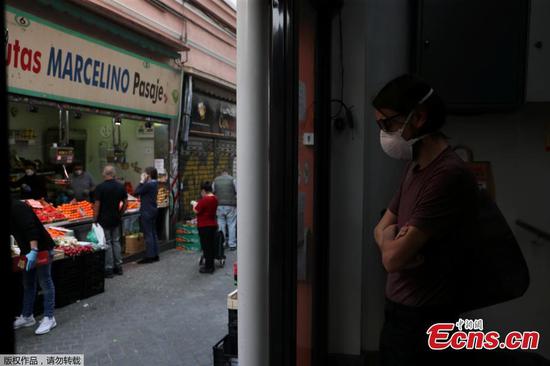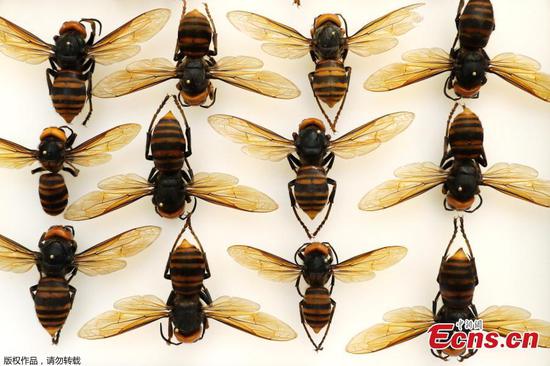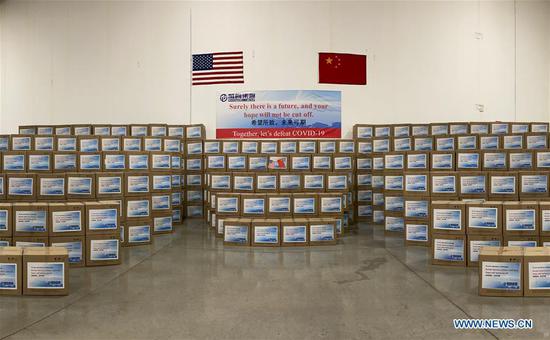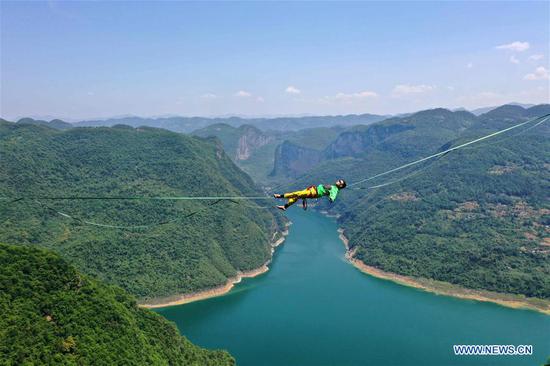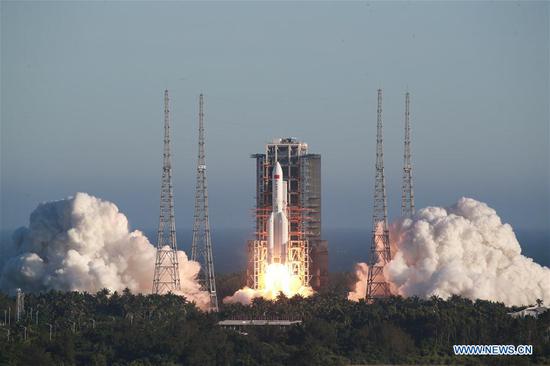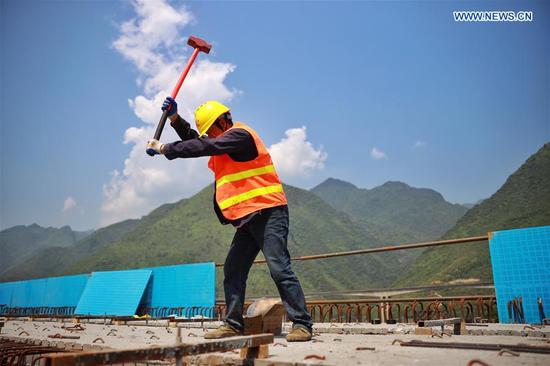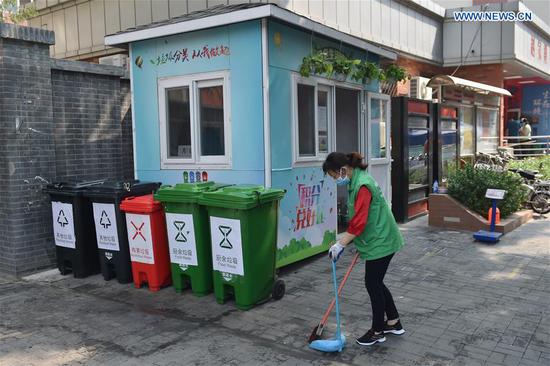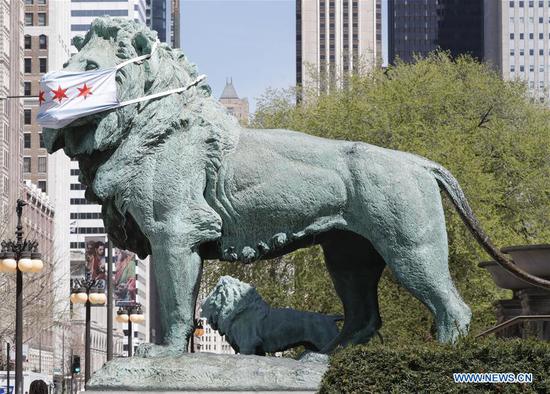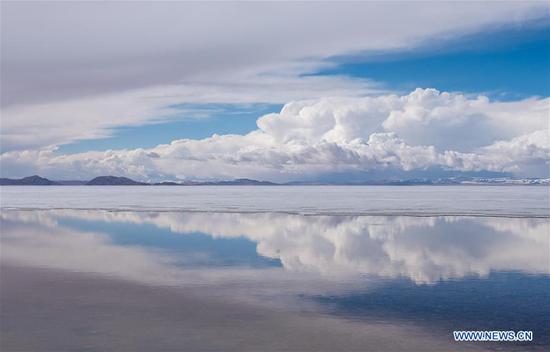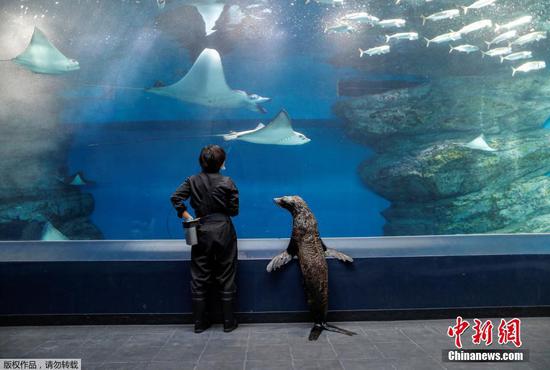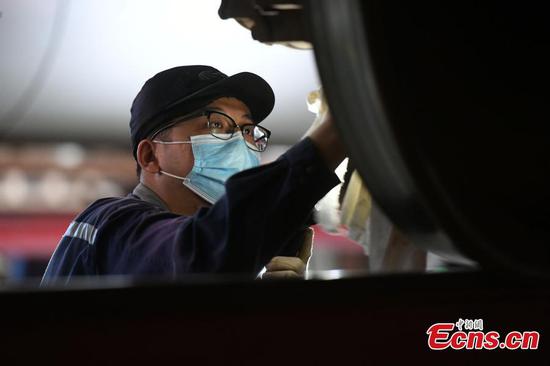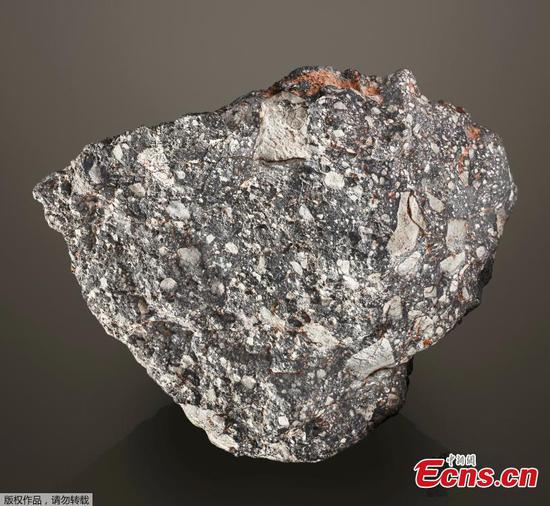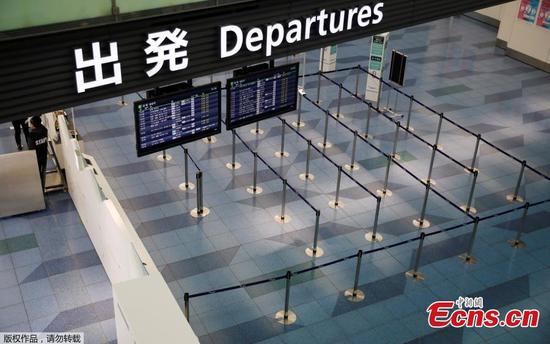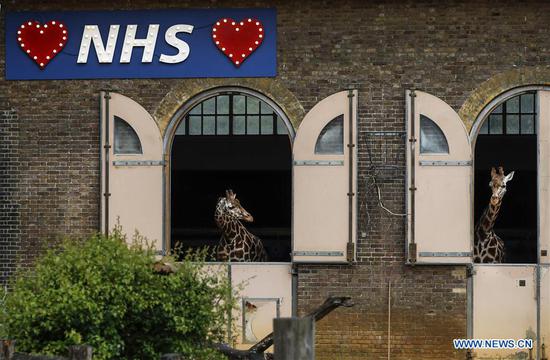
A child rides a bike on a street in Wuhan, central China's Hubei Province, April 12, 2020. (Xinhua/Xiao Yijiu)
As the novel coronavirus rages on worldwide, politicizing the outbreak won't eliminate the virus. Instead, this global fight demands collaboration.
NOT MANMADE VIRUS
Many researchers have ruled out that the virus was created, or engineered in a lab, with genetic studies showing that the virus has a natural source, evolution, and a transmission most probably of leaping from animal to human.
The hypothesis that a virus was created in a laboratory in China's central city of Wuhan sounded "a conspiracy vision that does not relate to the real science," Jean-Francois Delfraissy, an immunologist and head of the scientific council that advises the French government on COVID-19, once commented in an interview with French television BFM TV.
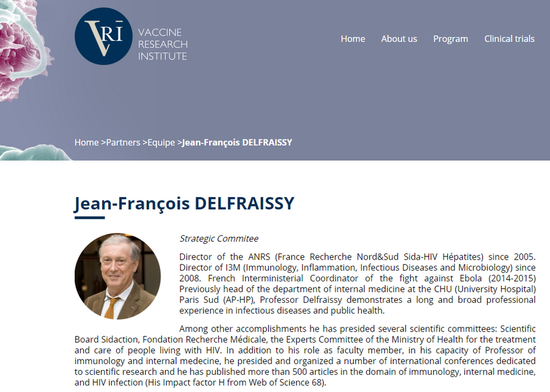
China is the first to report the coronavirus outbreak, which hit Wuhan, at the end of December. But this does not necessarily mean that China or Wuhan is the origin of the novel coronavirus.
The New York Times reported on Thursday that U.S. Secretary of State Mike Pompeo and other senior officials of the Trump administration have pushed U.S. intelligence agencies to "hunt for evidence to support an unsubstantiated theory" that a Wuhan lab was the virus' origin.
"The Intelligence Community also concurs with wide scientific consensus that the COVID-19 virus was not manmade or genetically modified," said a statement released Thursday by the Office of the Director of National Intelligence of the United States.
Concerning a possible accidental release of the virus from the lab, an article carried Friday by The Washington Post said that despite "the intense scrutiny" by the U.S. intelligence community, the virus' origins remain murky. "While intelligence analysts and many scientists see the lab-as-origin theory as technically possible, no direct evidence has emerged suggesting that the coronavirus escaped from Wuhan's research facilities."
"Many scientists argue that the evidence tilts firmly toward a natural transmission: a still-unknown interaction in late fall that allowed the virus to jump from a bat or another animal to a human," said the report.
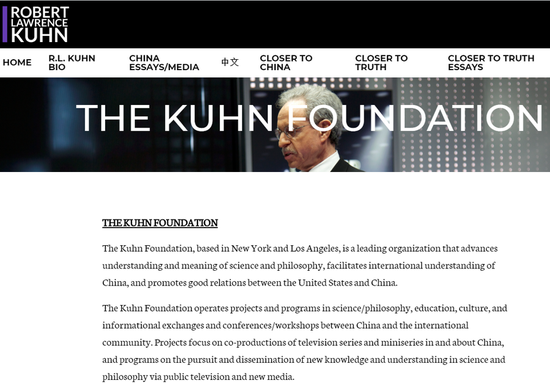
VIRUS POLITICIZATION "UNFORTUNATE"
There is yet no vaccine nor cure for the novel coronavirus, much of which remain unknown.
As of Wednesday, there have been over 3.66 million COVID-19 cases confirmed, with over 257,000 deaths, globally, and 1.2 million cases in the United States, with over 71,000 deaths, showed data by Johns Hopkins University.
International cooperation on virus research is urgently needed to facilitate quick development of treatments -- vaccines or medications. Scientists have warned of the possibility that the epidemic may return, adding both public health and economic uncertainty.
However, instead of focusing efforts on saving lives and livelihoods, politicians in some countries, especially in the United States, have tried to conveniently scapegoat China for their own failures to tackle the coronavirus outbreak.
"Some facts are generally accepted," Robert Lawrence Kuhn, chairman of the Kuhn Foundation, told Xinhua in an interview on Friday. "Trump's initial reluctance to heed early warnings of the American intelligence community about the then-coming epidemic was likely rooted in his concern that tanking the economy would tank his re-election."
"Mr. Trump's aides and Republicans in Congress have sought to blame China for the pandemic in part to deflect criticism of the administration's mismanagement of the crisis in the United States, which now has more coronavirus cases than any country," The New York Times reported on Thursday.
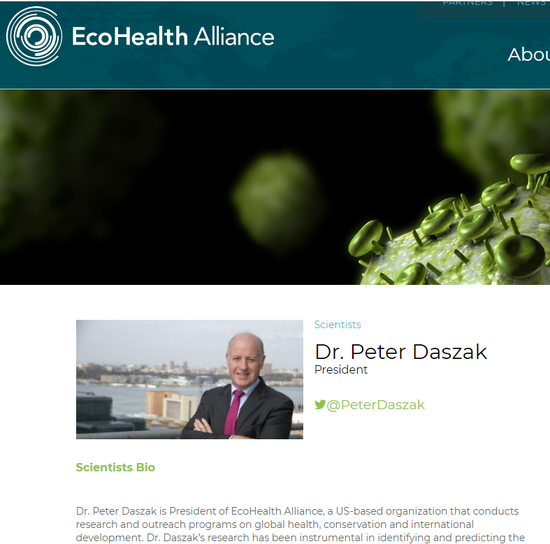
"We started to see the conspiracy theories, the pointing of finger at China and just the sort of politicization ... It is very unfortunate because what we need right now is open communication with scientists across the world," Peter Daszak, president of EcoHealth Alliance, told an interview with CNN on April 27.
Daszak's research helped identify the origins of the SARS outbreak. CNN introduced him as one of the world's foremost "virus hunters."
"The U.S. has wasted the whole of February and early March," said Richard Horton, editor-in-chief of the prominent British medical journal The Lancet, recently in an interview with China's CCTV television. "It is disappointing to see American politicians giving credence to conspiracy theories and promoting unproven treatments."
"We should be working together to face down this threat," he said, adding that it is useless and wrong to blame China for the origin of the novel coronavirus.
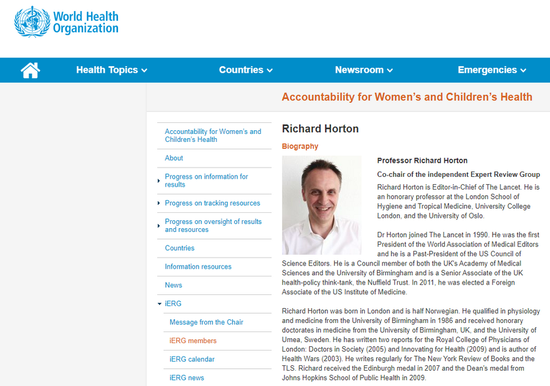
In a signed letter recently published by The New York Times, more than 70 U.S. and Chinese public health scholars urged the United States and China to cooperate in tackling COVID-19.
"Officials in Washington, Beijing and beyond should stride cautiously, however. Avoid infusing the politics needed to quell COVID-19 with tactics designed to serve partisan interests," read the letter.
Diseases know no borders; supply chains are internationally-embedded; and crisis management necessitates intergovernmental collaboration and data sharing among scientists, they noted.
They also called for rebuilding global public health alliances, such as the World Health Organization (WHO), another scapegoat for the White House in its disappointing response to COVID-19.









